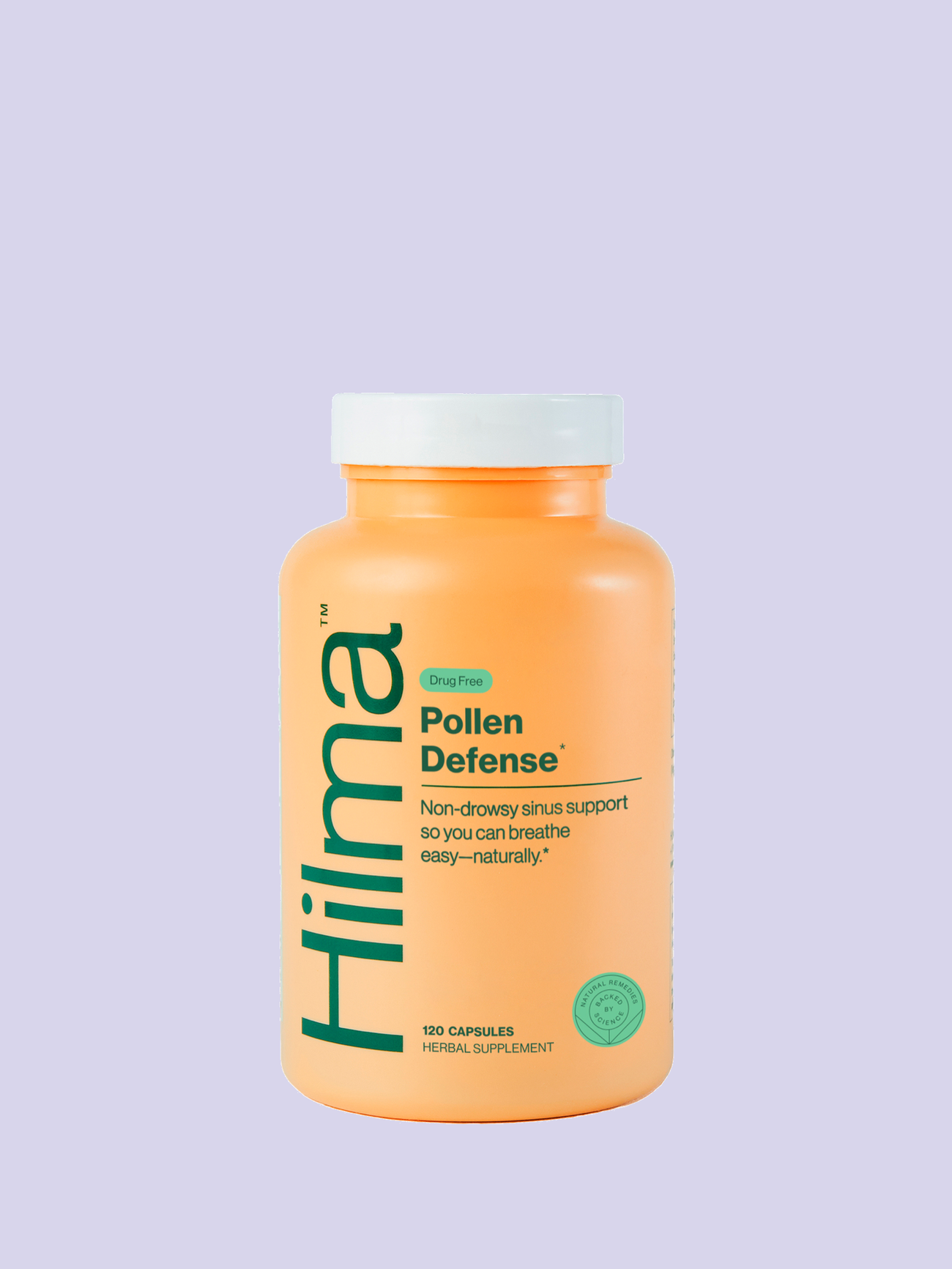
When you've got itchy eyes, can't stop sneezing, and feel congested, the first question you may be asking yourself is, "is this a cold, or do I have allergies?"
Turns out, they share something in common: your immune system.
What are allergies, and how do they relate to our immune systems?
Allergies stem from one of the essential arms of the immune system. When over-activated by pollen for example, that arm of the immune system generates antibodies that lead to those uncomfortable spring allergy symptoms. And many allergic and chronic sinus patients actually have more frequent episodes of bronchitis or sinusitis—which having a strong immune foundation can help avoid.
So how can you build a strong immune system to fight allergies?
The healthy immune system building blocks: getting enough quality sleep, eating well, and staying hydrated. This is especially important as we're in the middle of the COVID-19 pandemic. Our immune systems are likely more vulnerable—certainly if you've had COVID, but just the stress of a pandemic can be immune-depleting. A recent study from the National Academy of Sciences highlights that high pollen counts affect the respiratory tract and decrease our ability to defend against viruses because of diminished release of certain antiviral proteins.
What else can I do in my daily routine to fight allergies?
If your seasonal allergies are actually feeling better this season than in years prior, it could be the mask you're wearing to protect against COVID-19. One of the cornerstones of allergy treatment is avoidance and reducing exposure—so masks help decrease the amount of pollen for example that might hit your respiratory system.
You can reduce exposure on a larger level too. A big part of controlling allergies is controlling them at home—that can include keeping windows closed during the pollen season, showering at the end of the day so you don’t track allergens into bed with you, using an air purifier for the bedroom and any rooms you spend a lot of time in, keeping pets that might carry pollen out of the bedroom, and using a humidifier to fend off dryness from congestion.
How can natural solutions help me?
There’s plenty of extra natural support you can give your immune system in the form of drug-free, herbal ingredients. For example, Hilma’s natural allergy and sinus support, Seasonal Transition Set, includes Indoor/Outdoor Support that helps defend your sinuses against irritants like pollen and dust, plus your choice of an immune support gummy or drink mix. They’re packed with clinically proven ingredients like vitamin c, zinc, echinacea, ginger, elderberry, and more that can help with allergies by way of keeping your immune system in tip top shape.
When should I start my allergy support routine?
Don’t wait until your symptoms get bad—pollen season is associated with what is known as the “priming effect.” At first, pollen can trigger an immune response but not enough to cause issues. But symptoms can worsen as the spring allergy season progresses and there has been more exposure to pollen. The longer into the pollen season, the less exposure it takes to trigger symptoms.
Get your immune system ready before you feel the effects of allergies, and enjoy the season sniffle-free.
Sources:
- National Academy of Sciences of the United States of America
Note: This information is for educational purposes only, and should not be taken as medical advice. Please consult your physician before treating any disorder.



